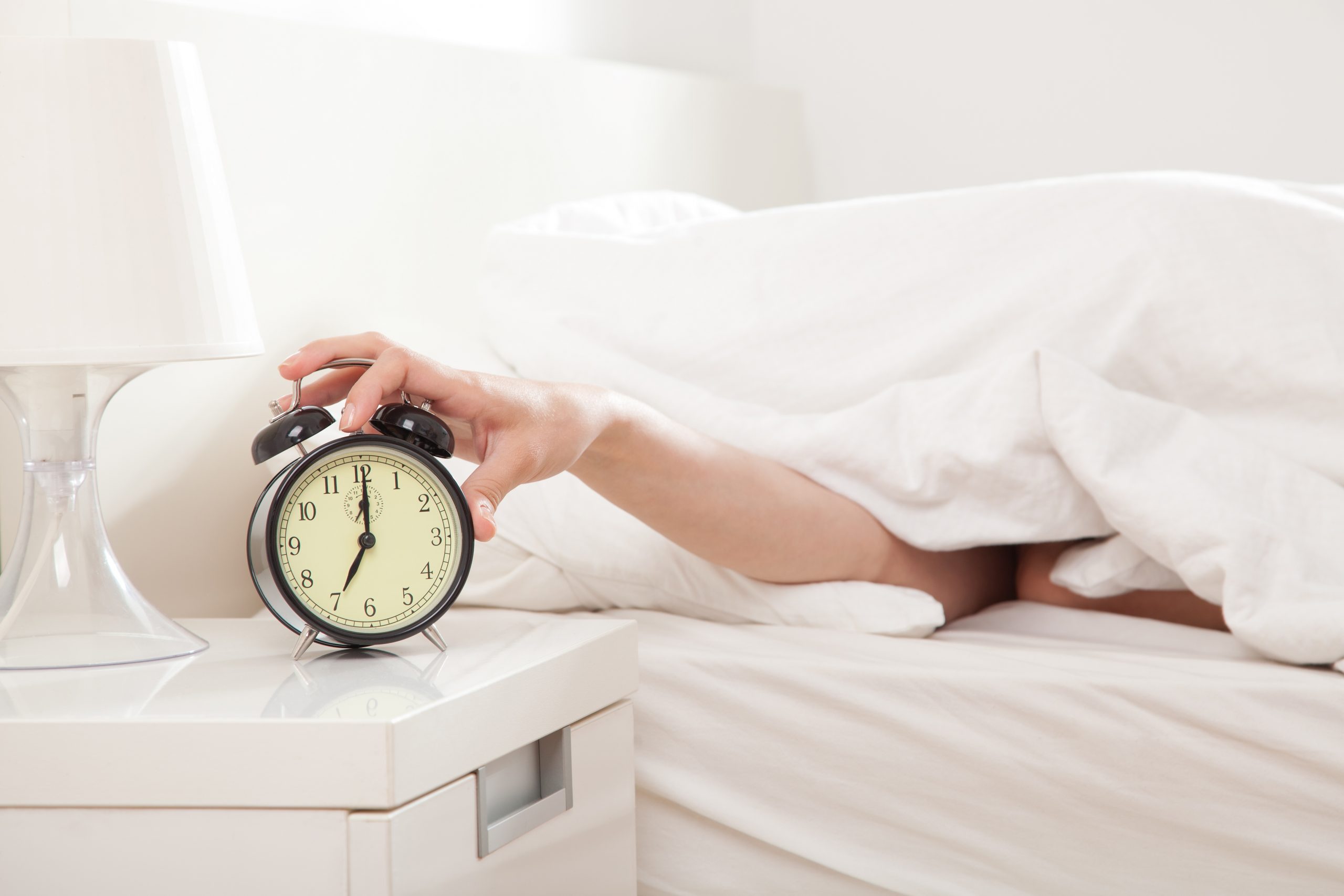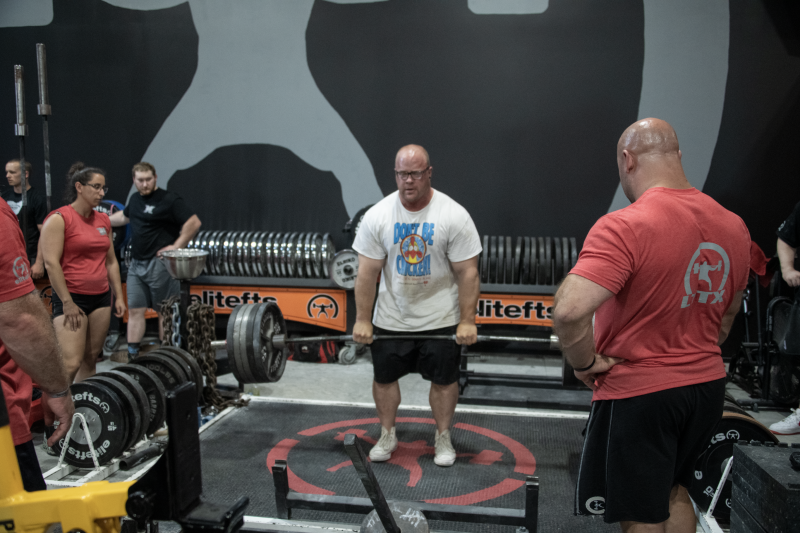
Your sleeping patterns could be slowing you down from achieving your fitness and body composition goals. Many of us have heard of the eight-hour rule, which deals with sleep quantity, but what about sleep quality? Optimising sleep quality could be your missing key to getting leaner and boosting your energy and productivity.
Here’s the deal with the eight-hour rule. There are a small number of people that can function properly, and even thrive, on just a few hours of sleep per night. The famous former British Prime Minister Winston Churchill functioned on just a few hours of sleep per night on most nights. Thomas Edison also got three to four hours of sleep each night, while more recently, Donald Trump was quoted, "How does somebody that's sleeping 12 and 14 hours a day compete with someone that's sleeping three or four?"
RECENT: The Truth About Late-Night Snacking
We do know that not enough sleep is bad for us. It strongly impacts brain function and can cause hormonal and blood sugar fluctuations. These side effects will wreak havoc not only on your productivity but your body composition, too. So, unless you’re the rare exception, the “you can sleep when you die” mentality for most is not a smart approach. Sleep deprivation can cause you to age faster, getting you closer to your goal of sleeping when you die that much sooner.
On the other end of the spectrum, there are those that truly need to get in 10 hours or more per night. This is how they are wired, so unless they are just being lazy and it’s a bad habit they have formed, they might truly need that amount of sleep for proper brain function. As a rule, you also need less sleep the older you get, with infants needing the most while the elderly the least.
Teenagers do generally need more sleep than mature adults, but you might not want to give them that as an excuse!

There are extremes at either end of the scale of sleep quantity, and they represent a very small percentage. For most of you reading this, chances are that seven to eight hours is a good quantity of sleep to aim for. Now here are five quick fire tips to improve your sleep quality, the often-missing key:
1. Hit Your Workouts Early
Not an early morning person? Well, you should be! Research shows that a workout done early in the day will improve your sleep quality later that night. When you choose to workout later in the day, for example after work in the evening, research shows this can have a negative effect on your sleep.
Get to bed on time, set an earlier alarm, and ideally, get your workout done before work, not after. You will sleep better that night and the cycle can start all over again the next day. It takes 66 days to form a new habit that becomes automatic to you, not the often-misquoted 21 days. So, persevere with the early morning workouts as nothing will change over just one night.
2. Take a Warm Shower or Bath Before Bed
Small changes in body temperature can have a huge impact on your sleeping habits. A warm (not too hot or too cold) shower before bed temporarily raises your core body temperature, only until you step out into the colder room, allowing your body temperature to drop again. This tiny little trick sends powerful little signals to our body’s internal clocks, helping to synchronise them and provide a more optimal internal environment for a better night’s sleep.
A room temperature of a pretty cool 60 to 67 degrees Fahrenheit (15 to 20 degrees Celsius) will help you sleep deeper, too, so be sure to adjust that thermostat before bed.
3. Eliminate Technology
I've you haven't heard already, phones, tablets, computers, and TVs keep you awake at night. The blue light emitted from these devices can keep you awake longer, as well as disrupt your sleeping patterns.
RELATED: The Time In-Between Sets Matters
The solution? Ban these devices at least 30 minutes before bed if you can, ideally longer. If you can’t do this, then some devices have programmes or apps you can download that alter the colour and level of light being emitted from your device. Eliminating the culprit before bed will be the better option, but if you need your nightly fix of TV or social media, then these light-adjusting tools can be a real sleep saver. But who really can’t put their phone down 30 minutes before bed?
4. Create a Cave
Your bedroom should be cave-like. Think of a place where very little light can get in, and its sole purpose is for sleep and hibernation. Outside of your sacred sleep space, your home could be full of technology and distractions, but when it comes to your bedroom, your brain needs to be associating that space with sleep and restfulness.
Because your body adjusts its internal sleep clock to light exposure, you also need to make sure your room is as dark as possible, which means having lined curtains or good blinds. Even a standby light on a TV can have an effect because the body is that sensitive. Just create your own dark cave free of worry and distraction, reserving your bedroom for sleep and sex only.
On that note, it has also been shown that most people sleep better when sleeping alone, so even the sex part might want to be reconsidered.
5. Choose the Right Supplements
You already know that you should try and avoid caffeine before bed. Caffeine not only keeps you awake but also completely disrupts you're sleeping patterns. You'll be tossing and turning all night.
What you may not know is that caffeine has a chemical half-life of five to six hours, meaning it takes approximately five to six hours for caffeine to be half-eliminated from your body. That means that even if you have coffee, take caffeine pills, or have your pre-workout mid-afternoon, chances are there is going to be an effect on your sleep that night. As a rule of thumb, try to avoid caffeine after mid-day to ensure a great night’s sleep.
There are also some supplements that have been shown to help you get a great night’s sleep and are more than worth the investment if you really struggle. Even a placebo effect would help. Most of these have been shown to increase levels of certain chemicals or hormones that regulate your internal sleep clock, such as melatonin.
Here are some supplements to consider:
- Ornithine is an amino acid that helps your body to eliminate ammonia in the gut and helps to relax and de-stress the body. Some people sleep dramatically better with ornithine. As a bonus, it will also increase growth hormone levels too.
- L-Theanine in capsule form helps with relaxation.
- Melatonin is a powerful sleep hormone and can be found in supplement form, although not as widely available in some countries. Melatonin supplementation is also particularly effective for helping prevent jetlag when taken at the right time according to the destination time zone.
- 5-HTP is a precursor to serotonin and melatonin. It helps you fall asleep, and many have reported how effective it is for sleep quality.
- L-Tryptophan is an amino acid that has been shown to increase brain levels of serotonin, a feel-good hormone, as well as melatonin. Both are extremely important in sleep, and studies show that low intake of tryptophan through diet can disrupt the amount of serotonin and melatonin naturally produced by the body.
- GABA is a neuroinhibitory transmitter. It’s what your brain uses to shut itself down. Great for type-A personalities and people whose brains are always active. Taken away from any other protein, since this can affect its absorption, GABA can dramatically calm you before bed.
Some of us spend half of our lives or more in bed. It would be doing your body and brain a disservice not to consider your sleep quality. Use these simple tricks to help you feel sharper, gain energy, and achieve your body’s potential.
Header image courtesy of Ana Blazic Pavlovic © 123rf.com
Gareth Sapstead, MSc CSCS, also known as The Fitness Maverick, is a renowned trainer and men’s fitness expert. He’s the author of several books, The Fitness Maverick Podcast on iTunes, and a contributor for such online publications as Consumer Health Digest, Muscle & Strength, and Breaking Muscle, among others. Join him on LinkedIn, Facebook, or Instagram.











Appreciate your article and I agree with everything in regards to improving sleep quality.
I just thought that the title of the article might be a little misleading. What’s your opinion on this: https://youtu.be/c23dpuDv4xg specifically as it relates to “sleep inertia”?